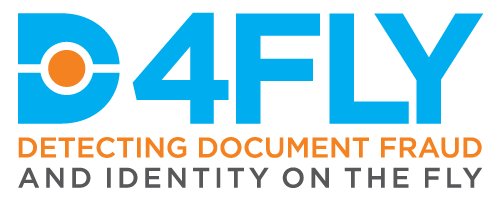Ethics and Privacy
The D4FLY technological tools aim to verify travellers’ identities through the use of biometrics and detect fraudulent breeder and travel documents through the use of artificial intelligence, their development and deployment has the potential to impact fundamental rights and EU societal values. D4FLY includes a dedicated Work Package to understand this potential impact and to mitigate and avoid any negative consequences, harm, or infringement of rights. Simultaneously, the consortium seeks opportunities to promote EU values and facilitate the exercise of fundamental rights.
The consortium pays special attention to:
- Informed consent
- Privacy of personal data
- Bias and discrimination in biometric verification tools and in datasets
- Gender equality
- Hardships for refugees
- Proportionality and Necessity
- Exclusion of certain groups
- Automation Bias
- Societal Acceptability of the D4FLY tools
To avoid risk to these values and rights and to protect and promote them, the consortium has completed the following assessments and reports:
- 16 ethics requirements deliverables focusing on data protection and research ethics
- Data Management Plan to track the flows and protection of data in the project
- 4 Data Protection Impact Assessments for the collection of biometric data to ensure the protection of the rights of participants
- Privacy Impact Assessment (PIA) to identify and mitigate any potential risks to individual and group privacy and to identify privacy enhancing technologies to develop
- Ethical Impact Assessment (EIA) to identify and mitigate any potential risks to EU societal values or fundamental rights and to identify steps to promote values and the exercise of rights
Ethics monitoring of all facets of the project is ongoing and led by partner Trilateral Research. This includes continuing the PIA and EIA work as well as continuous collaboration with partners on complying with GDPR and enacting research ethics best practices.
